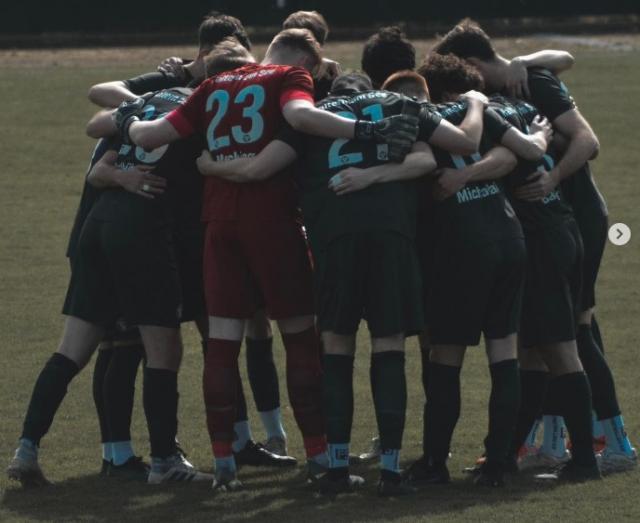TuS Haltern: Germany’s Athletic Bilbao

| Photo: TuS Haltern/Instagram |
As many people know, La Liga side Athletic Club, also known as Athletic Bilbao, have a strict homegrown player rule. Since the rule was introduced in 1912, the club have only signed players from the Basque region of Spain, or players who have learned their trade at a Basque club.
It is a huge part of the club’s identity and is universally associated with the club. The policy is even reflected in their motto: Con cantera y afición, no hace falta importación (“With home-grown talent and local support, there's no need for imports")
But away from the bustling Basque city of Bilbao and over to a little lakeside town in Germany’s North-Rhine region there’s a German club who have decided to adopt Athletic Club’s world-renowned homegrown player policy: TuS Haltern.
Great youth development
Sixth-tier amateur side TuS Haltern aren’t exactly the biggest club in the world. This season they’ve averaged just over 100 fans at home. But one thing they are well known for is their fantastic record of youth development.
The tiny club have produced the likes of former Real Madrid and Borussia Dortmund defender Christoph Metzelder, former Hannover 96 defender Sergio Pinto and most notably, Schalke legend and World Cup winner Benedict Höwedes.
Radical change
The club operated like any other small club for much of its history, relying on loan players, free transfers and developing young players. But in 2020, at the height of the Coronavirus pandemic, the club decided to make a radical change.
They said they wanted to move away from the traditional operating model that was seeing clubs at their level going bust left right and centre during the pandemic.
And so, the club decided that only players who were born, grew up in the town and the surrounding area, players who lived in the town, or players who came through the club’s academy had to make up a minimum of 75% of the squad with a view to make it 100% in the future.
The club’s marketing boss Raphael Brinkert explained that the reason for the change was to be more social, fairer and more sustainable. He also cited their excellent record at producing young talent as one of the factors in the change.
Downward spiral
Unfortunately, the new policy hasn’t exactly gone as planned so far.
When TuS Haltern implemented the new strategy, they were in the Regionalliga West, the fourth division. But in the four years since they’ve dropped down to the sixth division, and are currently sitting bottom of the league at the time of writing.
Despite the drop-off in success, the club has maintained its policy of homegrown players, and as the old saying goes: ‘Rome wasn’t built in a day.’ So we’ll have to wait and see whether Haltern’s decision will pay dividends.
